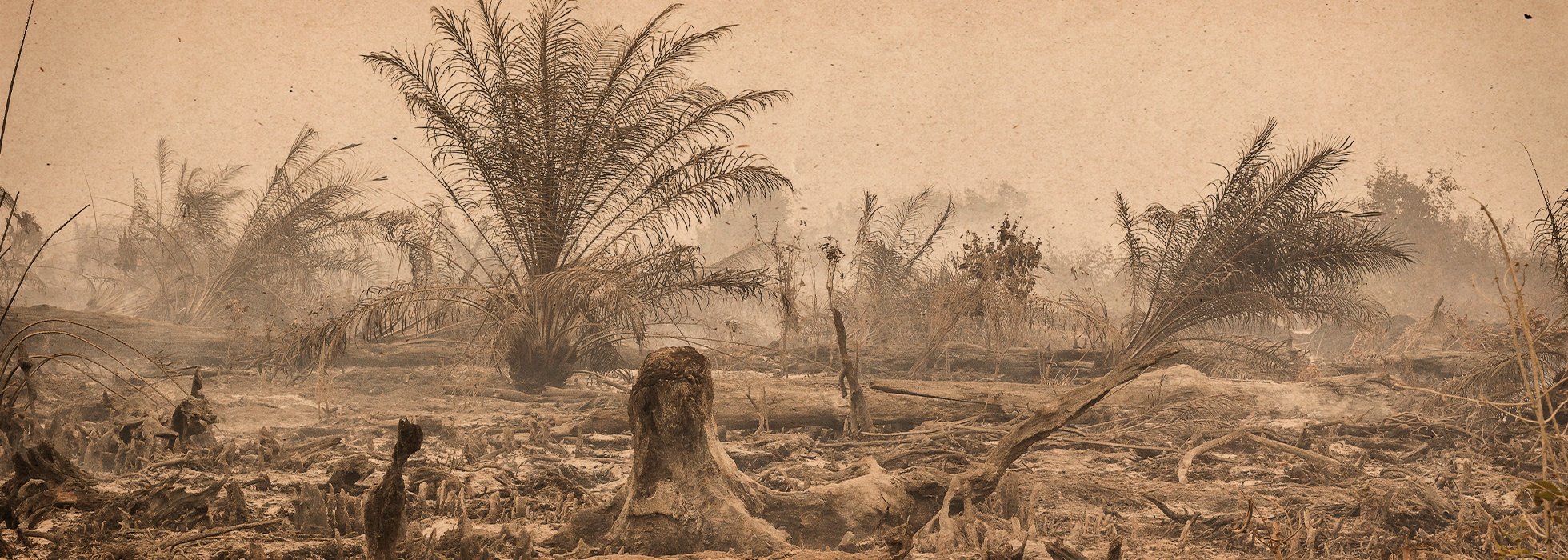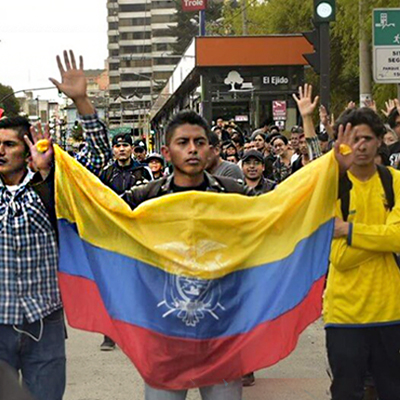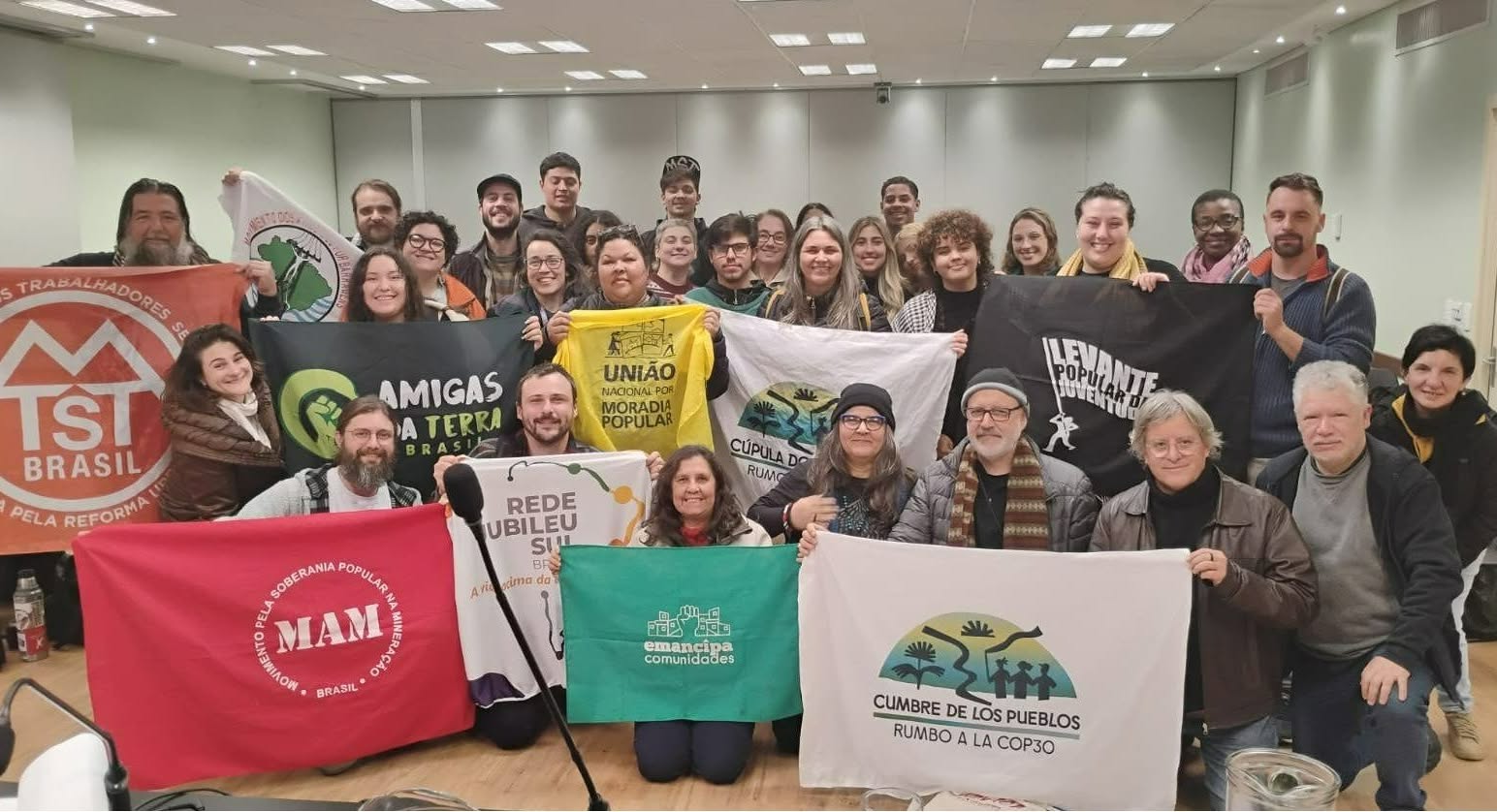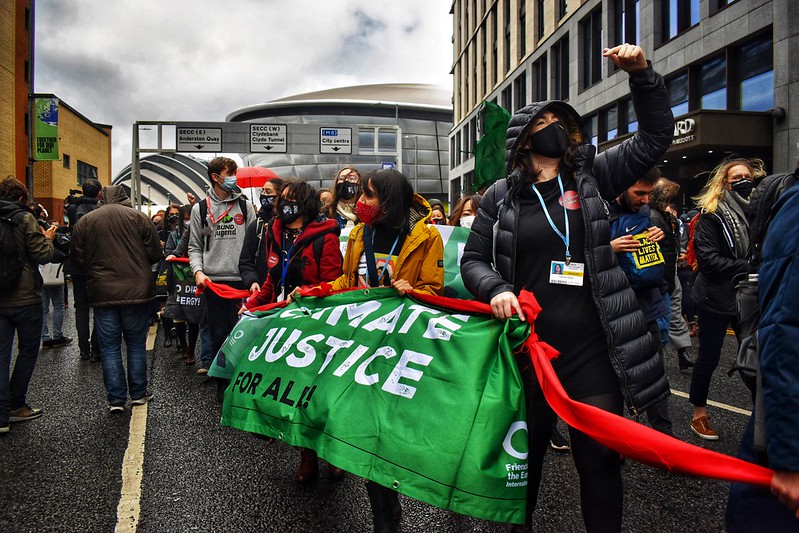Meeting for new UN framework to protect biodiversity to be held in Italy
Organizations warn of low ambition, false solutions and lack of attention on the true culprits of environmental devastation
 Photo: Friends of the Earth International
Photo: Friends of the Earth International
Environmental federation Friends of the Earth International reaffirms its concern over the lack of ambition in the new framework currently under negotiation at the UN, which will set the basis for the protection of biodiversity globally from 2020 to 2030.
A Friends of the Earth International delegation will participate in the second meeting of the Open Ended Working Group of the UN Convention on Biological Diversity (CBD) which is discussing the “Post-2020 Global Biodiversity Framework”, in Rome, Italy, from 24 to 29 February.
To better understand the federation’s position, Real World Radio interviewed environmental activist Friedrich Wulf, from Pro Natura – Friends of the Earth Switzerland, who has been following the CBD negotiations for 13 years and will be at the upcoming meeting in Rome.The activist explained that the 2011-2020 Strategic Plan for biological diversity, which includes the 20 “Aichi Targets”, will expire this year. That is why a new strategic plan must be adopted, the “Post-2020 Global Biodiversity Framework”, which will be in force until 2030. The Framework will potentially be approved in October, during the 15th Conference of the Parties to the CBD (COP 15) in Kunming, China.
For Friends of the Earth International, the “Draft Zero” of the new framework, made public on January 13, lacks ambition. “Many targets are weaker than the previous ones. There is also the language on corporations. The role, responsibility and rules of business is not fully addressed. The rights and equity issues are still weak,” said Wulf to Real World Radio.
He added: “Personally, I’m very worried about the section that is called ‘Meeting Peoples’ Needs’ which calls for an intensification or an enhancement, an increase of production in agriculture, in forestry, fisheries, etc. in order to meet peoples’ needs. But this will increase conflicts, because, of course, it will increase the pressure on biodiversity. So we don’t think that setting a quantitative target on the increase in food production is a good idea.” The federation has been warning for years, in line with La Via Campesina, that the issue is not the lack of food in the world, but the fact that marketing systems are controlled by big transnational corporations.
In an article published on 17 January, Friends of the Earth International considered that the Draft Zero of the “Post-2020 Global Biodiversity Framework” is “an encouraging move towards a system which tackles the root causes of biodiversity loss. However, it lacks crucial means for achieving change, including recognition of rights for Indigenous Peoples and Local Communities (IPLCs), and mechanisms for equity, justice and mitigation of impacts on vulnerable Southern countries,” they state. “It also frustratingly continues to promote false solutions which place a price on nature, such as biodiversity offsetting, and co-operation with the private sector,” they added.
In May 2019, a comprehensive global report published by the Intergovernmental Science-Policy Platform on Biodiversity and Ecosystem Services (IPBES, which reports to the CBD), warned that the natural world is in a dire situation and that human actions have significantly altered nature in different parts of the world.
“Human actions threaten more species with global extinction now than ever before. Around 1 million species already face extinction,” highlighted the study. The report also warns that the world will face ecological collapse and mass extinction of species unless dramatic action is taken to change social and economic systems.
At that moment, Friends of the Earth International warned about the importance of the IPBES report, although they argued that it failed to identify the true culprits of biodiversity devastation – transnational corporations leading activities such as industrial agriculture and large-scale mining. While the study mentions these actors, it does not do so enough times, and it fails to analyze the economic structures that confer them so much power.
Wulf explained to Real World Radio: “What we are really asking for is system change, we need a fundamental change of the societal and economic system that causes the loss of biodiversity. That means we need to change the drivers, we need to change the economy, so the pressure on biodiversity is not as big. Because,we lose millions of square kilometers of rainforest every year, through palm oil production, through meat and soy production, etc, and this has to be stopped.”
Nevertheless, the member of Pro Natura – Friends of the Earth Switzerland, welcomed the consultation that will take place a few days ahead of the negotiations in Rome to address issues of responsibility, accountability and mechanisms to make the “Post-2020 Global Biodiversity Framework” work. “I hope we can come up with a couple of ideas that will be added to the draft text later on,” he stressed.
According to Wulf, another positive aspect is the call for better implementation of the new framework. So far, only environment ministers are in charge of ensuring the implementation of what the CBD says. “But there is text now that asks the Heads of State to take responsibility and every ministry to do what they are responsible for,” he said.
“Most of the so-called Aichi targets which were key in the present Strategic Plan have not been met. The reason for this is not that the targets were not good. The reason is that not enough was done to actually make this happen. So we really hope to strengthen the language on review and compliance, on all things that can make implementation work better in the future,” he added.
And he stressed that Friends of the Earth International “will try to strengthen the role of participation of Indigenous Peoples and Local Communities which have been highlighted as having a key role for the conservation of biodiversity in the IPBES report”. That study warns that territories managed by Indigenous Peoples and Local Communities are in better condition and that these peoples must be protected.






